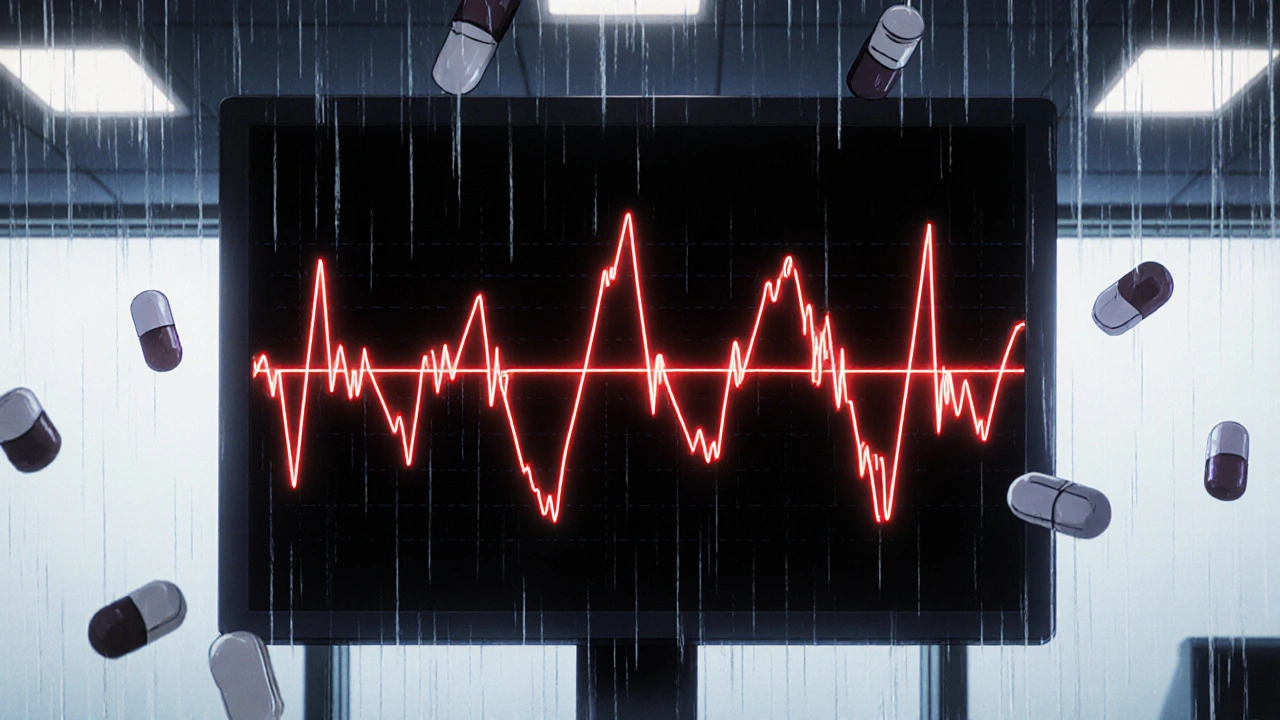Cardiac Safety: What to Watch When Taking Medicines
Some drugs affect the heart directly or by changing your blood chemistry. That can mean fast heartbeats, low or high blood pressure, dangerous rhythm changes, or swelling. You don't need to be a doctor to reduce risk—simple steps cut your chances of problems and help you spot warning signs early.
Common drug-related heart risks and clear examples
Here are the main ways medicines can cause heart trouble, with examples you may see:
- QT prolongation and arrhythmia: Certain antibiotics and other drugs can slow heart electrical recovery, raising the chance of dangerous rhythms. Ciprofloxacin is one example to watch.
- Electrolyte shifts (potassium, sodium): Diuretics and potassium-sparing drugs change potassium levels. Spironolactone raises potassium; loop diuretics like Lasix can lower it. Both changes can trigger palpitations or fainting.
- Blood pressure drops or spikes: ACE inhibitors, ARBs, and many blood pressure meds change pressure quickly. If you switch from lisinopril to another drug, monitor your BP closely.
- Tachycardia from inhaled meds: Inhalers with albuterol (Proair) can cause a fast heartbeat in some people.
- Interactions that add risks: Two drugs that both prolong QT or both raise potassium can be dangerous when combined.
Knowing which category your medicine fits helps you know what to monitor.
Practical steps you can take today
Follow these simple, practical actions to lower risk and catch problems early:
- Keep an up-to-date medicine list, including OTC drugs and supplements. Show it to every prescriber and pharmacist.
- Ask whether a new drug affects the heart, the specific risk, and what tests to get (ECG, electrolytes, creatinine, blood pressure checks).
- Get a baseline ECG if starting a drug known to prolong QT or if you have heart disease.
- Check potassium and kidney function before and after starting diuretics, ACE inhibitors, or potassium-sparing meds.
- Avoid combining two QT-prolonging drugs when possible. Ask your pharmacist to check interactions.
- Watch for red flags: new chest pain, fainting, sudden dizziness, severe shortness of breath, or fast/irregular heartbeats. Seek urgent care for these.
- Limit alcohol and be cautious with herbal products like St. John’s wort; they can change how drugs behave.
If you have questions about a specific medicine—like spironolactone and drinking, lisinopril alternatives, Lasix choices, or ciprofloxacin safety—bring that article or printout to your clinician. Use your pharmacist as an easy, quick safety check. Small steps—baseline tests, a clear med list, and watching symptoms—go a long way toward keeping your heart safe while you take medication.
Torsades de Pointes from QT-Prolonging Medications: How to Recognize and Prevent This Life-Threatening Reaction
Torsades de Pointes is a life-threatening heart rhythm triggered by common medications that prolong the QT interval. Learn how to recognize the warning signs, which drugs are most dangerous, and how to prevent this preventable emergency.
Managing Arrhythmias While Traveling: Safe Trip Tips for Heart Health
Planning a trip when you have arrhythmia doesn't have to be stressful or risky. This article breaks down simple steps and smart tricks to keep your heart rhythm stable while exploring new places. From what to pack, how to handle emergencies, and the truth behind airport scanners, every angle is covered. Facts, stories, and practical advice make sure you travel safe and enjoy every mile. Stay one beat ahead with expert-backed guidance you can trust.


